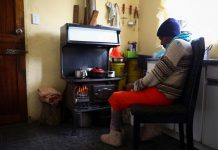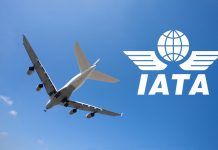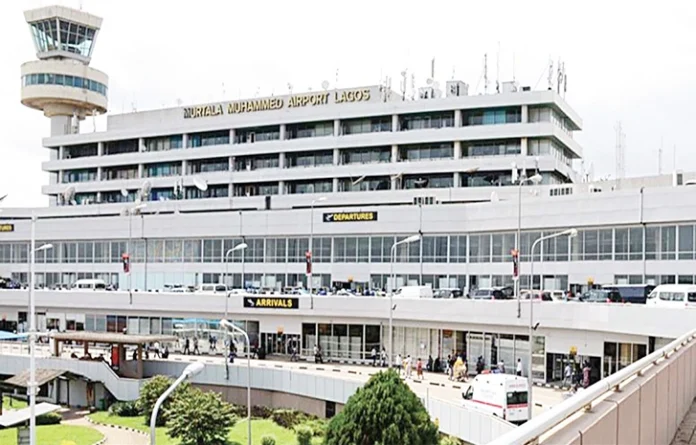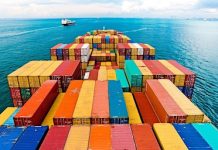On 6 May, the Airlines Operators of Nigeria (AON), an association constituting all nine local airlines in the country, announced that it would be suspending all flight activities from 9 May due to the prohibitively high cost of imported aviation fuel.
“Over time, aviation fuel price (JetA1) has risen from N190 [$0.46] per litre to N700 currently. No airline in the world can absorb this kind of sudden shock from such an astronomical rise over a short period. While aviation fuel worldwide is said to cost about 40% of an airline’s operating cost globally, the present hike has shot up Nigeria’s operating cost to about 95%,” a statement jointly signed by the airline chiefs reads.
“To this end, therefore, the Airline Operators of Nigeria (AON) hereby wishes to regrettably inform the general public that member airlines will discontinue operations nationwide with effect from Monday, May 9, 2022, until further notice. AON uses this medium to humbly state that we regret any inconveniences this very difficult decision might cause and appeal to travellers to kindly reconsider their travel itinerary and make alternative arrangements.”
However, on 8 May, another announcement, signed by the AON chairman, stated that the association was calling off the suspension after deliberation with government representatives.
Explaining the decision to scrap the suspension, Obiorah Okonkwo, CEO of United Nigeria and spokesperson of the AON, said that the airlines had had productive discussions with government on reducing fuel costs and reining in middlemen.
“We had discussions on reducing the racketeers, and a special intervention on importation by NNPC (the state-owned Nigeria National Petroleum Corporation), giving us 30% of their direct importation for the next three months. Out of the 30,000 metric tonnes they have, 10,000 tonnes will be specially allocated to us.”
But this development doesn’t allay the concern of the public who fear another suspension or ticket price hikes that individuals and business travellers can ill afford against a challenging economic backdrop.
“For the people, it means a tougher life, and for Nigeria, a slower economy at the end of the day. Because if it were easy for people to move around, people would travel more and that is what contributes to GDP growth,” economist Tope Fasua says.
Was the suspension necessary?
According to Okonkwo, the association had to take strong action for their concerns to be acknowledged by the government.
“We looked at it and saw the inevitable need to adjust the base price. We felt that if we continue to adjust on a weekly basis, it might be very difficult for us to explain to the people. We know the economic situation in Nigeria is already very very volatile and the travelling public is already facing a lot of issues such as inflation. At that point, we felt it was important to let people hear us and know what we are going through,” he says.
He explains that they recognised that shutting down their operations would temporarily destabilise travel arrangements for and inconvenience thousands of passengers but says that the continued increase in the price of aviation fuel is becoming too much for the airlines to accommodate without immediate government intervention.
The conflict in Ukraine, starting in February, has caused a spike in the price of aviation fuel internationally, but Okonkwo also says that the activities of oil market middlemen in Nigeria are inflating prices to unsustainable levels.
“We have our own calculations of what cost it should be in Nigeria, the minimal markup that could go to a typical marketer, the logistics and then premium on profit. The price could be a lot less than what is being sold to us,” Okonkwo says.
Many of the fuel suppliers also need to be paid in dollars, further increasing costs.
Even though productive meetings have been held with the government and the NNPC, Okonkwo fears that the agreed solutions are only likely to work in the short term given that Nigeria imports nearly all its refined jet fuel.
“We still have a long way to go. As long as Nigeria doesn’t use our crude oil and produce Jet A-1 in Nigeria, we will still be subject to all other changes in the international market. The government needs to get involved, call these guys to a roundtable, see what you can do to ameliorate their pains given the fact that it is the fault of governments that we can’t use any other means of transportation,” he said.
Without further action, aviation operators may have to shut down some routes and concentrate on core journeys if the price of aviation fuel keeps soaring, warns Fasua.
A struggling industry
Even though the Nigerian aviation industry has grown from 8m to up to 20m passengers a year in the last 10 years – the best growth progression from around the world according to Okonkwo – government support for the sector is scarce, he says. Private sector operators are largely left to their own devices in a ruthless and uncertain market.
“If tickets are high, the travelling public don’t fly that much. So you fly at an unprofitable capacity. As a private business if you lose money, the only thing left for you is to collapse and close shop. Banks come after you and take over. Two of our bigger airlines like Arik and Aero are under anchor management and if care is not taken, a lot more would go that way and this is not good for the economy. But, you know, this is where we are now.”
Until a longer term solution can be found to the fuel supply and price issues, the Nigerian travelling public is likely to continue to be frustrated by the patchy service of local airlines. Okwonko says that travellers should understand that the industry is under unprecedented strain and much of the ticket price paid by consumers is siphoned off by government.
“If you are charged about fifty or hundred thousand naira, there are about 35 deductions that go into that money and a good amount of that go to government agencies. We want to let the public know that everything we set out to do every day is to ensure the pricing of tickets is affordable. We seek their understanding and appreciate them as partners in progress.”

























